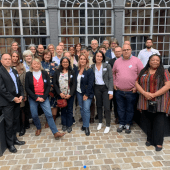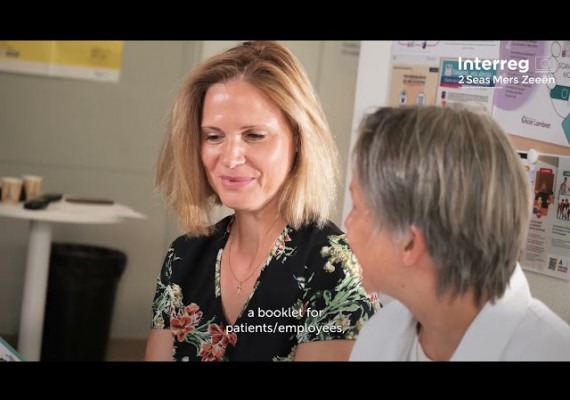BHC21
Boosting Human Capital in the 21st Century
Priority Axis
Technological and Social InnovationSpecific objective
Social Innovation
Lead partner
POM West-VlaanderenContact
Start Date
01/04/2019End Date
31/01/2023Project budget
3 660 644 €ERDF amount
2 196 386 €ERDF rate
60%About
Common challenge
Unemployment rates of low-skilled people (level 1-2 in the EU Qualification Framework) in the 2 Seas area remain high, even while there is a continuously growing number of operational job openings amongst others in the manufacturing sector.
A study of DG Employment and Social Affairs (2015) mentioned that a common cause is skills mismatch, either because there are not enough jobseekers with the necessary skills to fill open vacancies or because job requirements by employers do not fit with the competences of jobseekers. This study advised EU members to train the (un)employed. However, learner centre training is underused in the manufacturing industry, training does not account for barriers to learning experienced by low-skilled people (LSP) and fails to provide solutions to overcome these challenges (Nielson, 2011).
Therefore, vocational training services for the manufacturing sector in the 2 Seas area needed modernisation by combining expertise of work and education (Marope et al., 2015). The BHC21 project addressed this challenge.
Overall objective
Main outputs
Cross border approach
Main Achievements
Among the many achievements accomplished by the project, it is worth mentioning the three successful roadshows implemented in the first project implementation year. Some project partners still refer to these road shows as to very strong learning experiences.
The other achievements were the tests and co-creation sessions, the development and introduction of training programs with ILT’s. Vocational training programmes were put in place.
Train-the-trainer: Having ILT's implemented in corporate training required new skills and knowledge from the trainers themselves.
The final event in October 2022 represented the coronation of the project results. This event created a lot of positive vibes in the partnership and motivated everybody to contribute to a well thought programme. The partners had the chance to share their findings with the external stakeholders during the webinar, the workshops and the technology fair. It was an extremely successful event.
Partners also stated the great collaboration that originated during the project and recognised that none of the results would have been possible without the strong cooperation among them.
The positive synergies developed in BHC21 are to be further transferred to the new upcoming projects. In this regard, POM, Sirris, VDAB, Syntra, Cetim, Meef, Sud Concept and new partners have submitted a project within the new Interreg France-Wallonie-Flanders Programme.
Testimonial

We want to encourage companies to organise this kind of training and convince them to invest in it. Many companies think that they will not reach the low-skilled audience, but you have to offer them the right challenge. And innovative learning technologies help with that.
Kim Dekeyser, researcher in instructional design & technology at the KU Leuven (campus Kulak)


